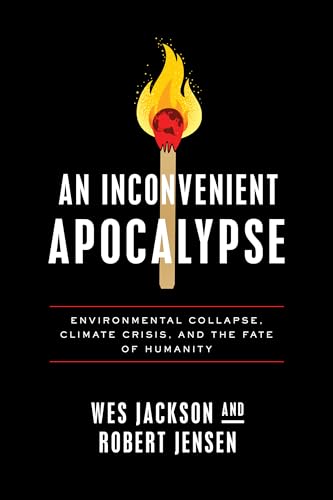
Author: Jackson, Wes
Price: $18.65
Category:Economics
Publication Date:2022-09-01T00:00:01Z
Pages:184
Binding:Paperback
ISBN:10:0268203660
ISBN:13:9780268203665
Confronting harsh ecological realities, this book explores the roots of social injustice and offers a down-powering path to “fewer and less.” Since the advent of agriculture, humans have been depleting the ecological capital of the planet, with some doing far more damage than others. In An Inconvenient Apocalypse, Wes Jackson and Robert Jensen, two of today’s most prominent writers in the fields of sustainability studies, argue that to understand the present we need to recognize how geographic determinism has shaped the past and how we can’t ignore human nature in planning for the future. The failure to understand the human place in the struggle for energy-rich carbon leaves us facing four hard questions: How much smaller is a sustainable size for the human population? What is the appropriate scale of our communities? Is maintaining our current infrastructure and energy-dependent society within our true scope of abilities? How much faster do we need to move in order to avoid even greater catastrophes? Whatever choices we make, Jackson and Jensen argue, the new future will be marked by “fewer and less,” far fewer people consuming far less energy. The authors offer a secular reading of theological concepts–the prophetic, the apocalyptic, a saving remnant, and grace–to chart a collective path for dealing with today’s multiple cascading ecological crises. The inevitable down-powering will not be easy but can lead to a renewed appreciation of the larger living world, a more joyful participation in the Creation. Written in plain language with intellectual rigor, An Inconvenient Apocalypse is accessible for general readers. In addition, students in the environmental humanities and Anthropocene studies more broadly will find this book rich and important.





